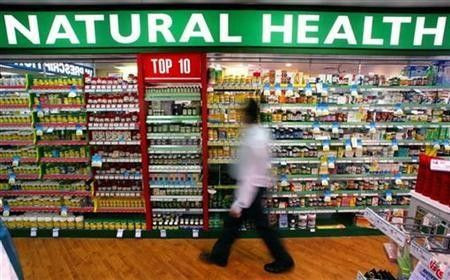Budget View: FMCG firms want inflation tackled

India's fast moving consumer goods industry is hoping the upcoming budget will bring in concrete measures to tame spiralling inflation and viable tax structure to ensure continued growth.
The 130-billion-rupee industry, which is the fourth largest sector in the Indian economy, has been reeling under the pressure of surging input costs and subsequent impact on profit margins.
Prices of agri-commodities are on the rise. Prices have risen by 30-35 percent in the past two years...there is also simultaneous rise in freight rates and packaging costs, said Chitranjan Dar, chief executive of foods business, ITC.
If growth has to continue, then the problem of inflation has to be tackled, he said.
Companies are hoping for full or partial exemption in excise duty on commodities such as biscuits, condensed milk, sugar confectionary and packaged water. However, analysts said excise on cigarettes is likely to go up by 6-8 percent.
The industry also wants an increase in allocation for various rural development programmes in a bid to enhance rural income and revision of tax slabs in order to boost discretionary consumption.
The industry is expecting the allocations under various schemes such as NREGA ( National Rural Employment Guarantee Act) to continue as for all FMCG companies 30-50 percent of their consolidated revenues come from rural India, an analyst with brokerage Sharekhan said.
TAX REFORMS
The fast moving consumer industry is also seeking change in the taxation system and expects the government to implement the much-awaited goods and services tax (GST), a single nationwide tax, which will cut business costs.
However, analysts said chances of implementation of the GST in the 2011 budget is unlikely.
We want the government to lay down a road map for rapid implementation of the GST which will lead to decline in prices of consumer goods and boost overall volumes, said Adi Godrej, chairman of the Godrej group.
The proposal, first mooted in 2007, is two years behind its original schedule, having missed two earlier target dates due to opposition from the Bharatiya Janata Party (BJP) and from several states who worry their revenue might decline.
The budget may also lead to an increase in the minimum alternate tax to 20 percent from the present 18 percent.
MAT is a tax that has to be paid by companies that enjoy tax benefits or exemptions under various schemes.
The MAT rate must be reduced to 10-12 percent otherwise it negates the benefits the government has given to industrial units for locations and other benefits. Its a non-desirable trend as the MAT rate goes up every year, Godrej said.
© Copyright Thomson Reuters 2024. All rights reserved.





















